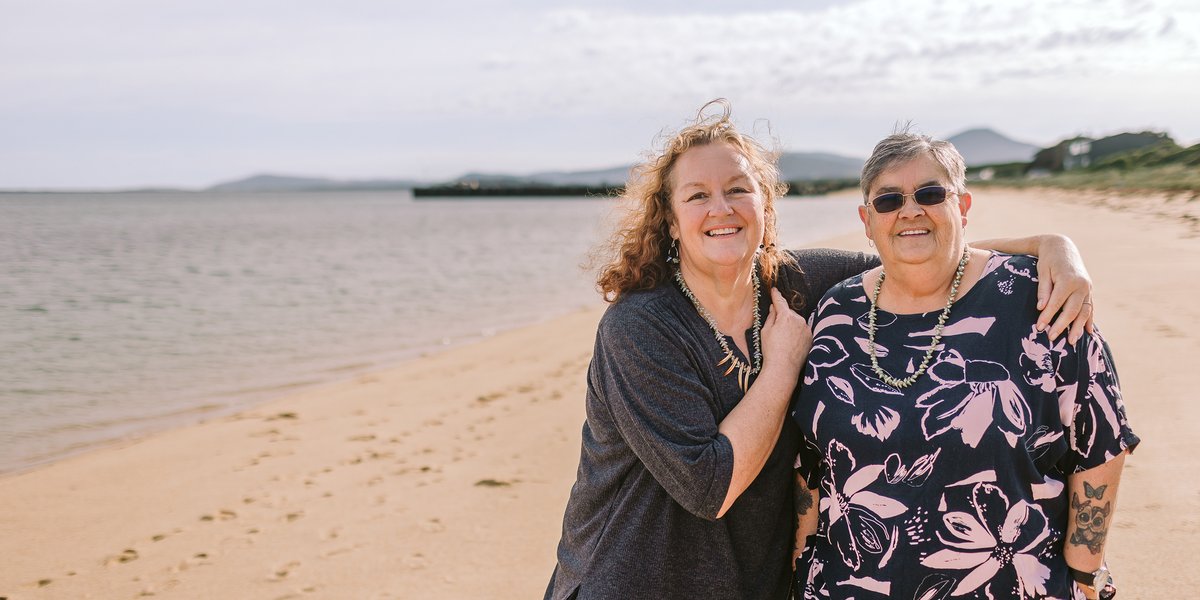Kate Mooney
"If they want to do something they’ll do it, and nothing is going to stop them. It’s probably why I like them so much, because they remind me of myself."
"The thing about any island community is that if you come and take and don’t give anything back, then you won’t last. But once you give something, you cannot ever repay what is given back to you."
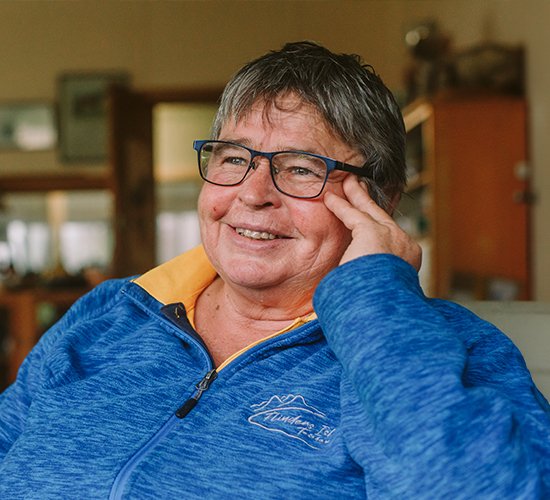
Kate Mooney’s first visit to Flinders Island was for a pony club camp, back in her teens.
She immediately fell in love – with both the place and the people – and has now lived on the Bass Strait island for more than forty years.
While Kate’s passion for animals has endured, most of her attention is now focused on caring for the abundant native wildlife on Flinders Island. For the last three decades, Kate has dedicated herself to raising orphaned baby wombats.
“Someone handed me a wombat – I called him Batsky – thirty-something years ago,” she explains. “I’ve raised a couple of wallabies too but I prefer wombats because they’ve got so much more personality. Some of them are really cheeky, while others are pretty cool. In the years since Batsky, I’ve only had one period of six weeks where I haven’t had a wombat to care for.”
The Flinders Island wombats are a unique subspecies – Vombatus ursinus ursinus – that are slightly smaller and greyer than their counterparts on the Tasmanian mainland.
“They’re every bit as determined as the others though,” laughs Kate. “Very singular. If they want to do something they’ll do it, and nothing is going to stop them. It’s probably why I like them so much, because they remind me of myself.”
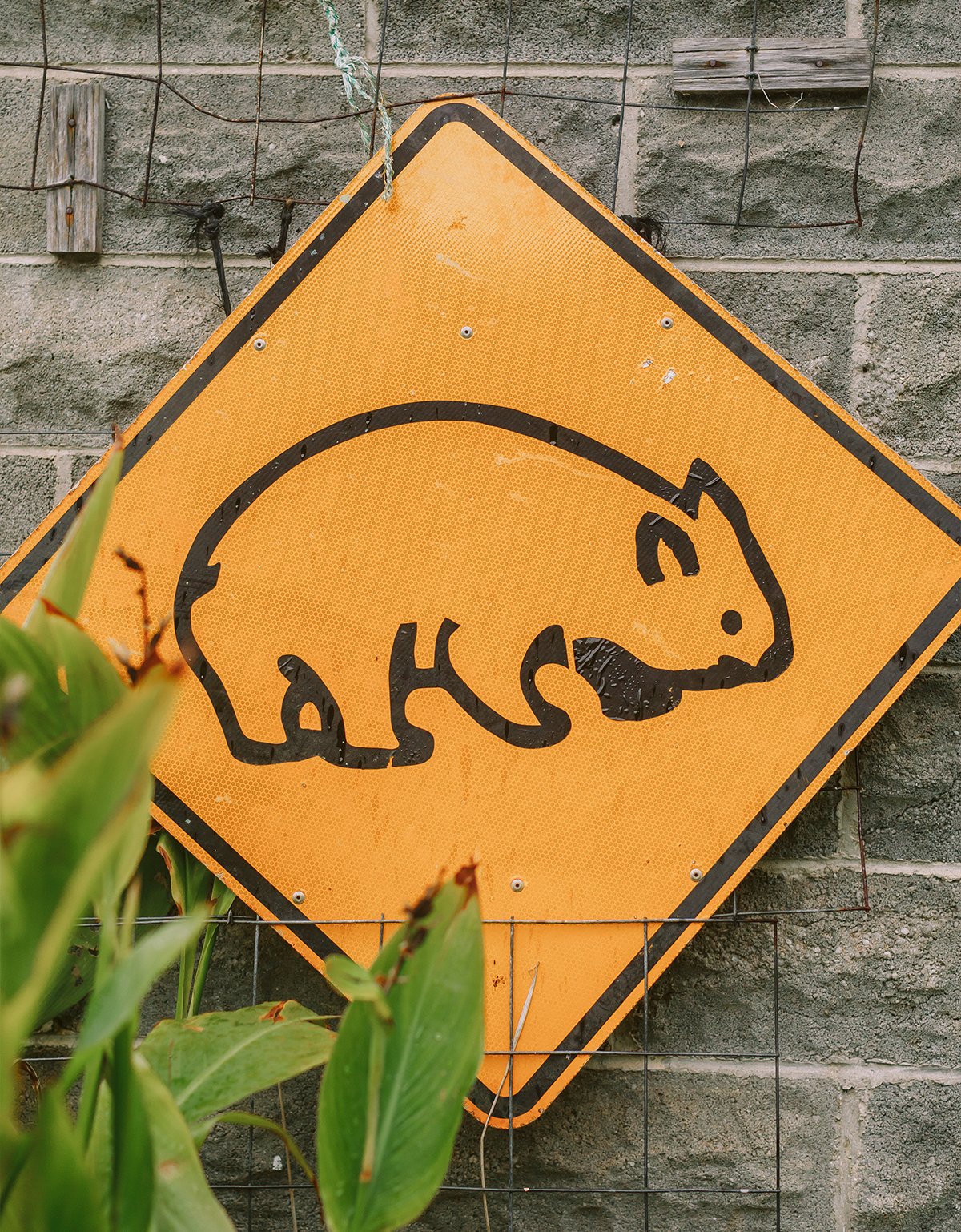
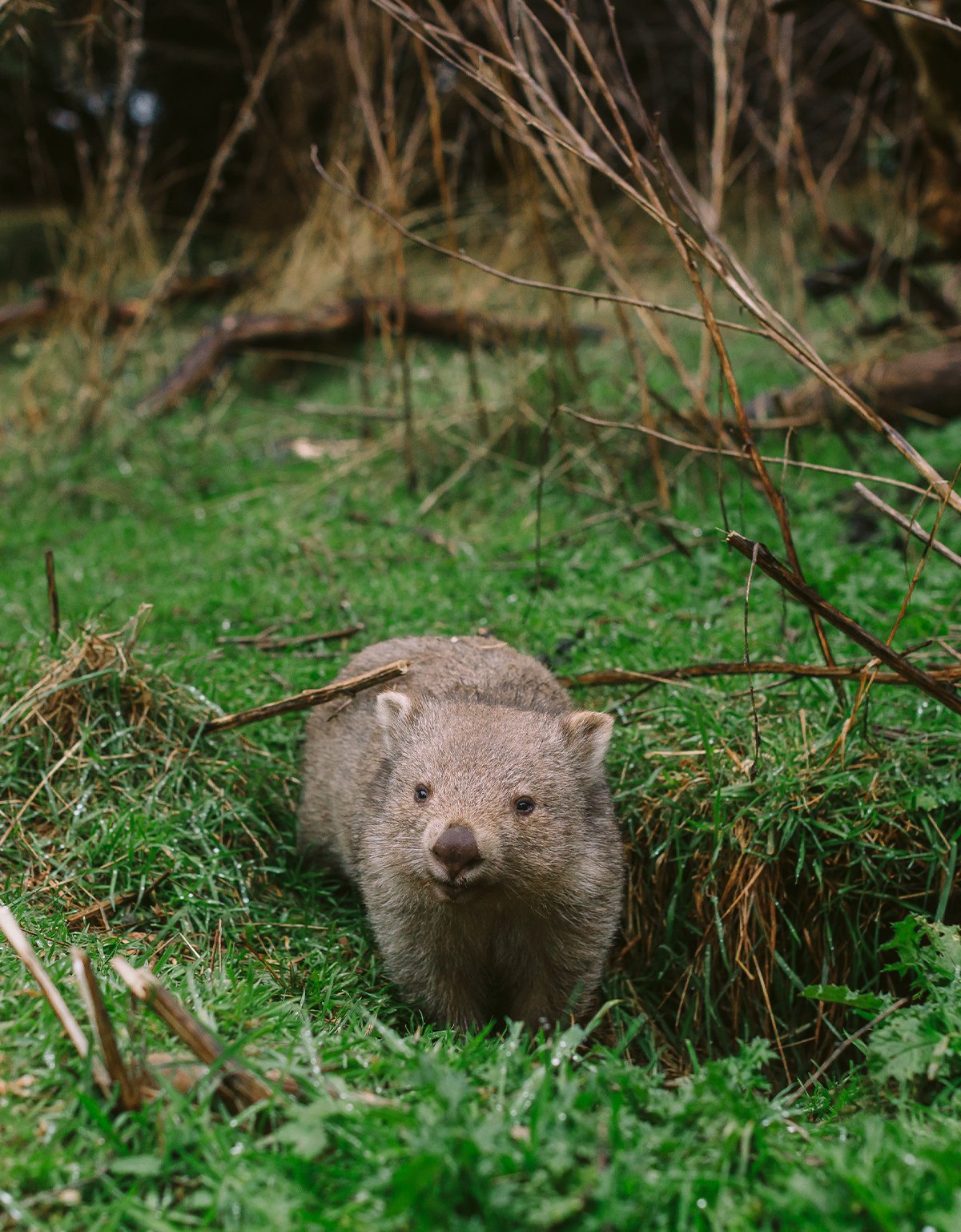
They’re all so clever though. The plan is always for them to eventually go wild.
Unfortunately, it’s that endearingly stubborn character – the wombat determination to go where they want, when they want – that sees them getting in trouble so often. Even the most careful of Flinders Island drivers can struggle to avoid collisions on the roads – and it is the babies of dead and injured mother wombats that keep Kate so busy. She estimates that more than 300 babies have passed through her hands over the last thirty years – and each one was named, although at this point Kate wonders if she might need to start doubling up.
“Initially they were Batsky, Batman, Bat, Batiste…. A whole stack of bats! Then we started naming them after the people that found them. Now it’s just whatever hits me.”
Perched on the edge of her couch with baby Oliver in her lap, Kate pulls out her iPad and scrolls back to find a video. “This is the three Ws playing on the couch,” she smiles. “Watson, who is now the smallest. Wilbur, and Warren. Warren was always the most playful. They’re all so clever though. The plan is always for them to eventually go wild.”
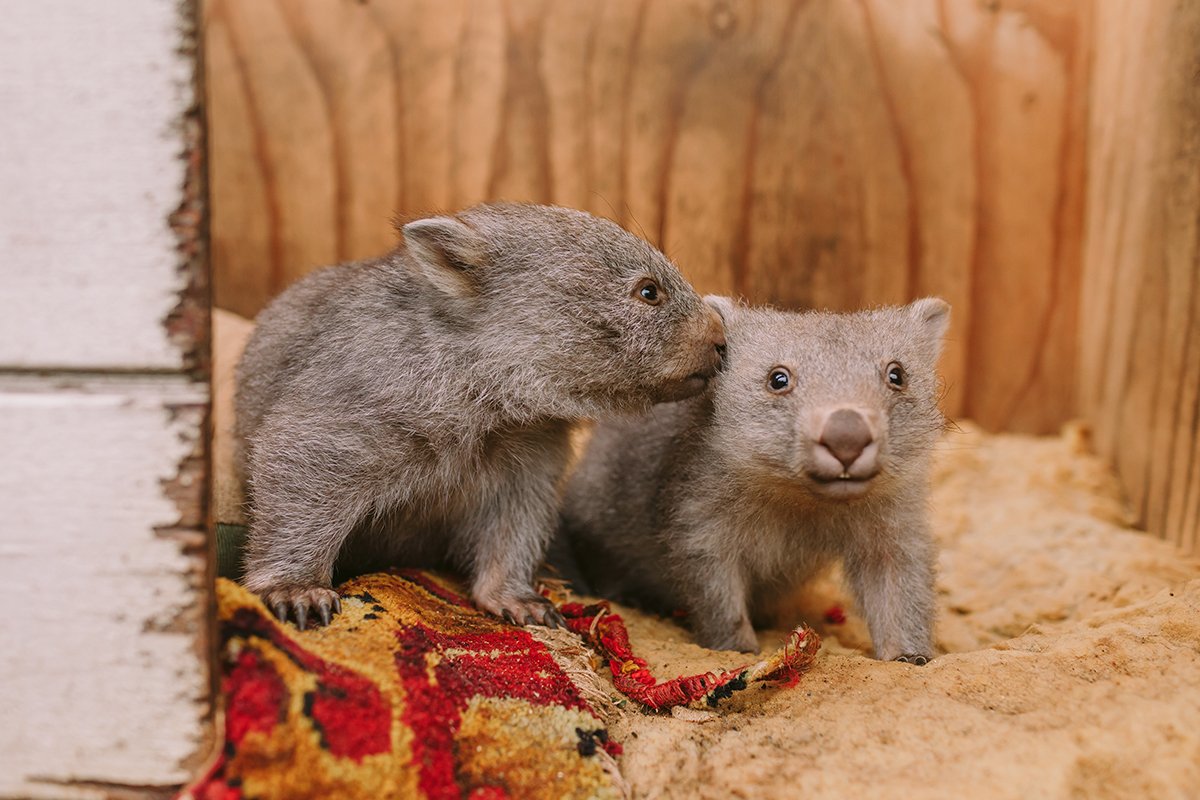
A quick peek at Kate’s Instagram feed might suggest that rearing orphaned wombats requires nothing more than constant cuddles and the occasional feeding. But the reality of her work is another story entirely.
“The feeding depends on how old they are,” explains Kate. “But the little ones probably need at least four or five feeds a day, and I always have a lot of them at one time. I do try and wean them early – I buy lots and lots of rolled oats, and then I use pony pellets for the bigger ones. I’m still trying to find the perfect bowl that they can’t knock over.”
“You have to spend hours cleaning, too,” she continues. “That’s my choice to have them, so I’m not complaining, I have to deal with the aftereffects. But they’re stinking things! They also break things a lot. I didn’t realise how much work it was until my god-daughter’s husband came over and looked after them for a week when I had to be in Hobart. Afterwards he said to me, ‘God you’re amazing!’”
Kate’s commitment to the animals in her care mean that it can be tricky to take time off, and she has continued with her work even after two hip replacements. “I did have a little one called Grant between my hip operations,” she confesses. “I had to get a port-a-cot to keep him in because I couldn’t reach all the way down to the ground to pick him up.”
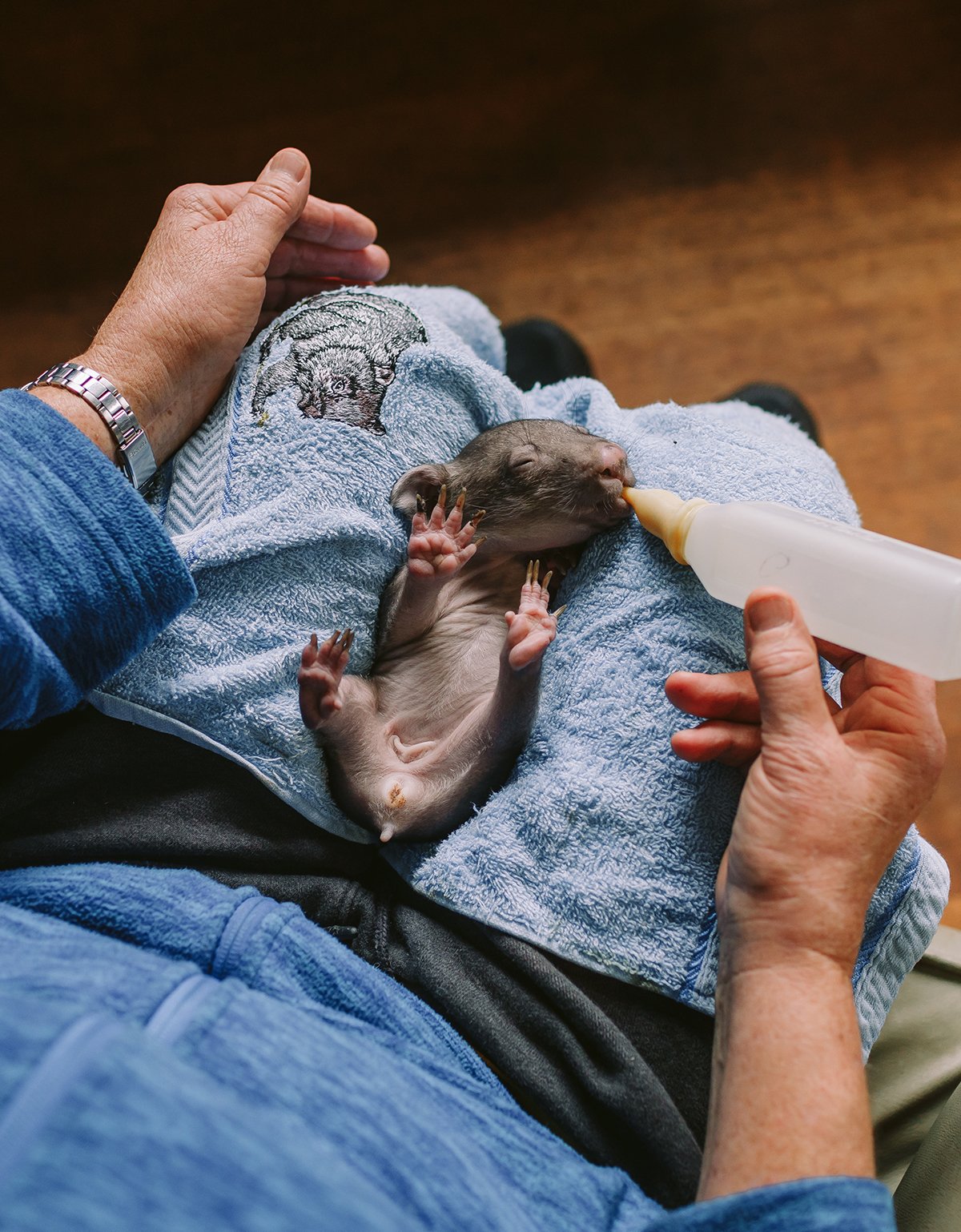
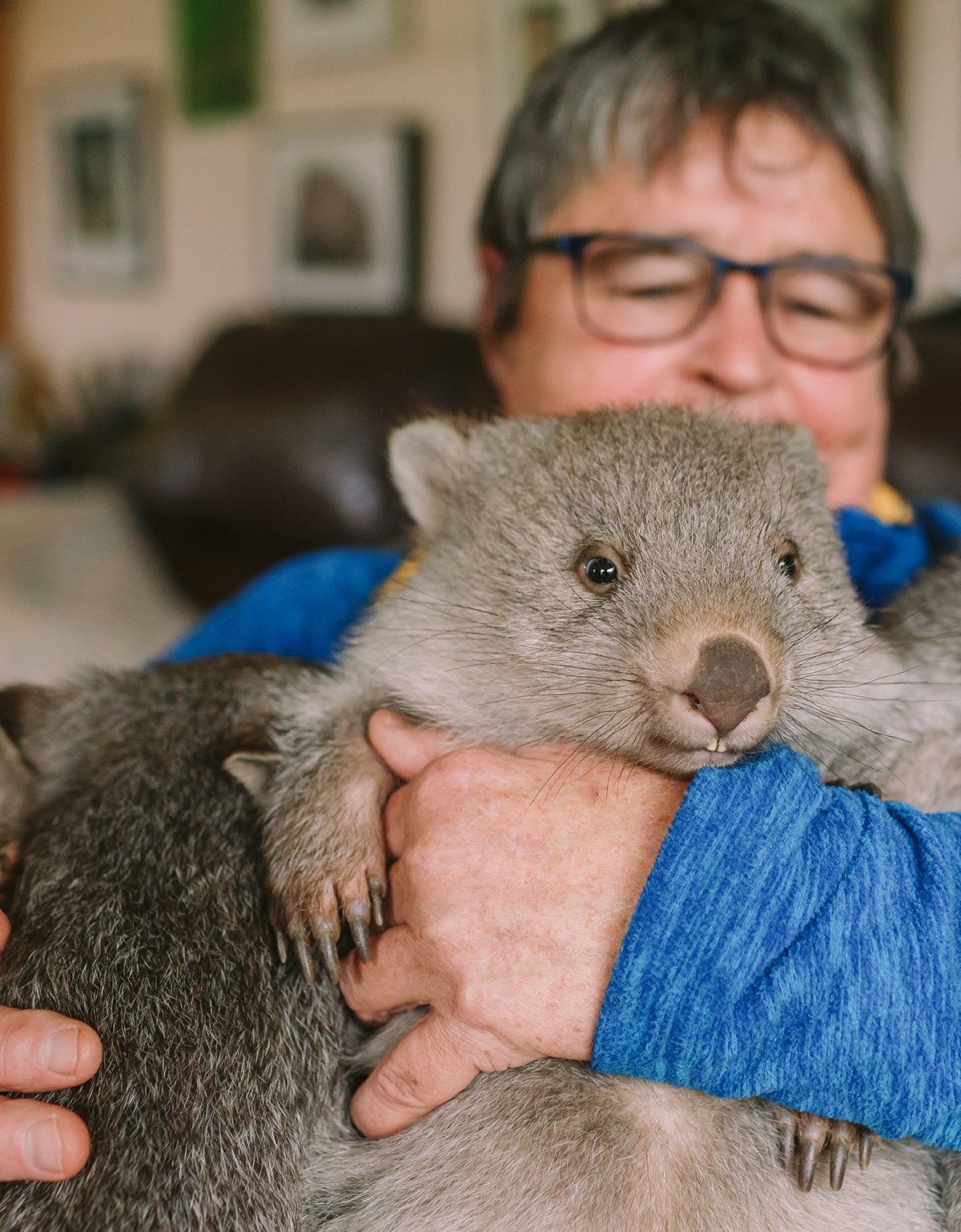
I like the kids. I love the scenery here – it’s a beautiful place and it will always be my home – but it’s about the people too. The people are good. We are a clever, aware, knowledgeable community.
Remarkably, Kate also finds enough hours in the day to hold down a job as the school bus driver – a role that sees her out and about shuttling kids around the island five days a week.
“I enjoy it,” she says. “I like the kids. I love the scenery here – it’s a beautiful place and it will always be my home – but it’s about the people too. The people are good. We are a clever, aware, knowledgeable community.”
“The thing about any island community is that if you come and take and don’t give anything back, then you won’t last,” Kate muses. Her home is filled with wombat memorabilia; gifts from friends, locals, and strangers who appreciate what she does for the community. “But once you give something, you cannot ever repay what is given back to you.”

We worked with southern Tasmanian writer Ruth Dawkins, southern Tasmanian photographers Fred + Hannah and southern Tasmanian videographer The Human Story Films for this Tasmanian story.
Read about more Tasmanians
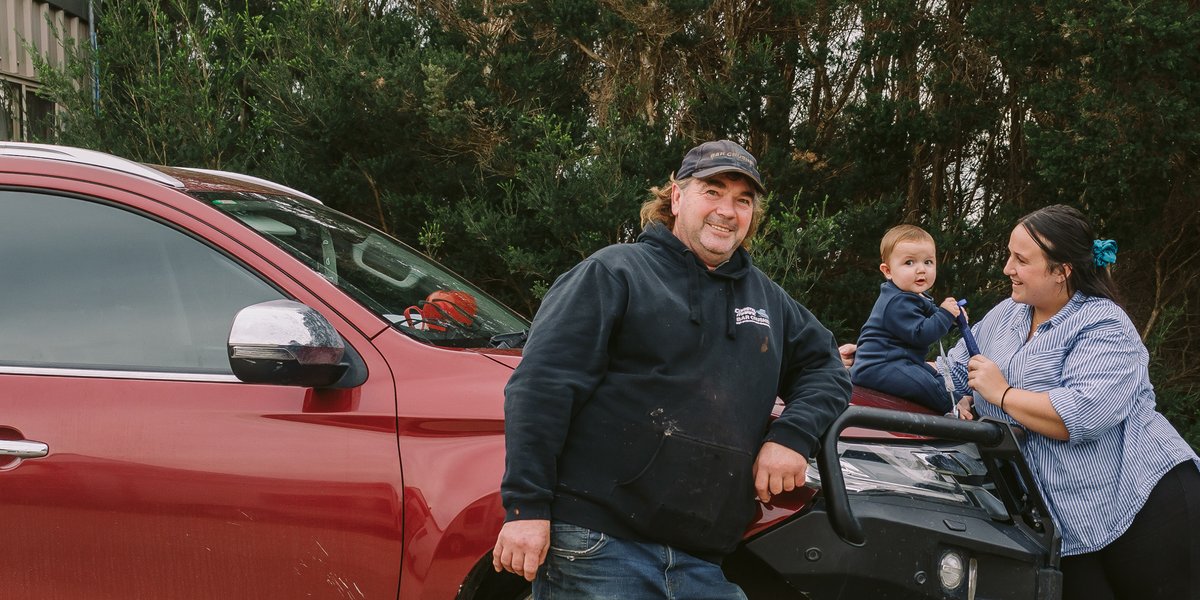
Charlie Davis
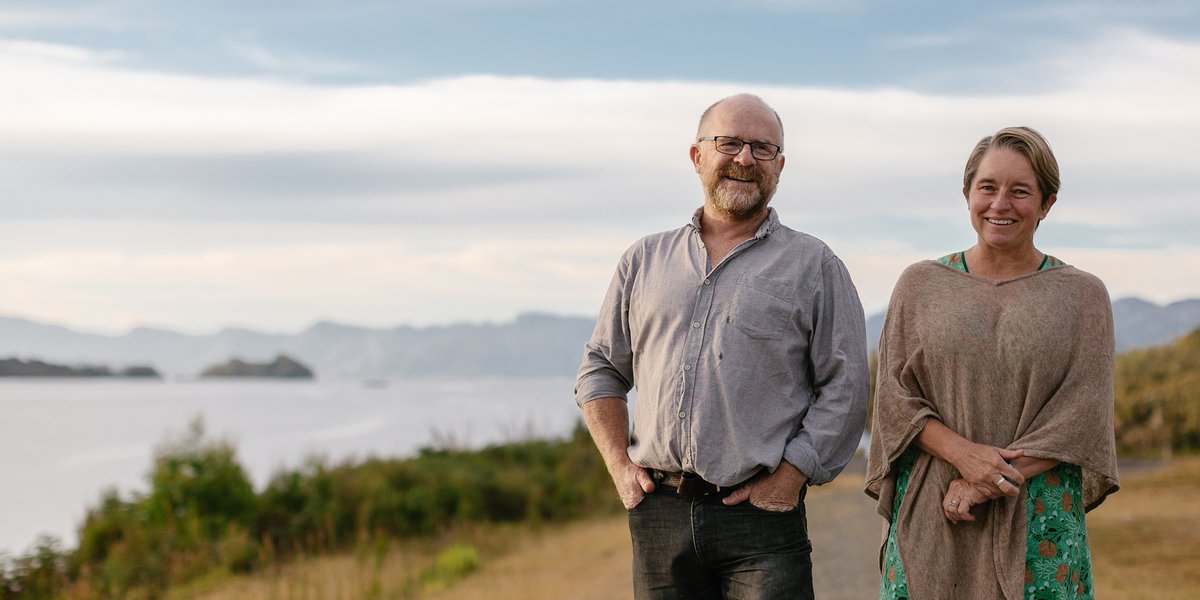
Cam & Ally Skeels
